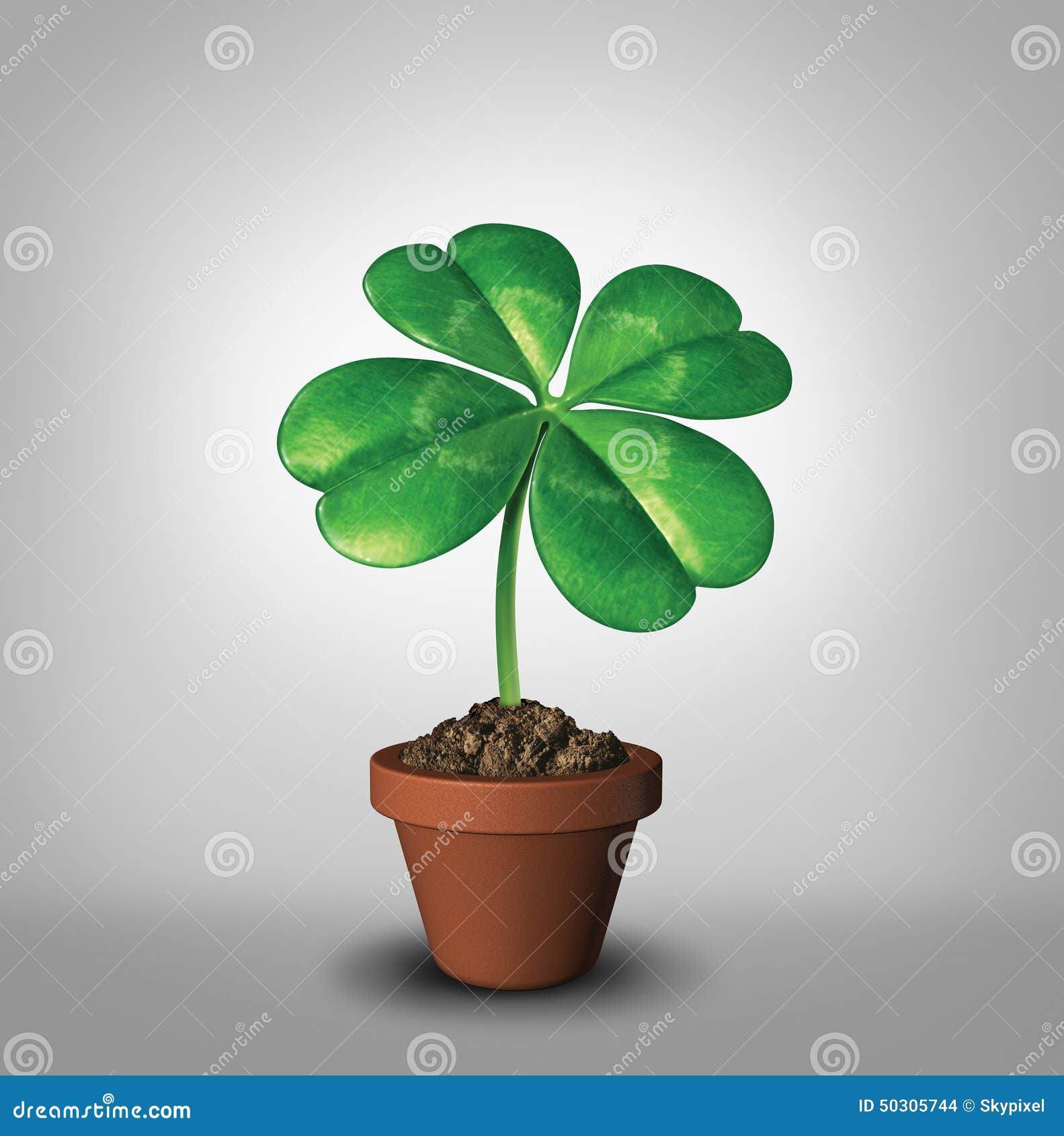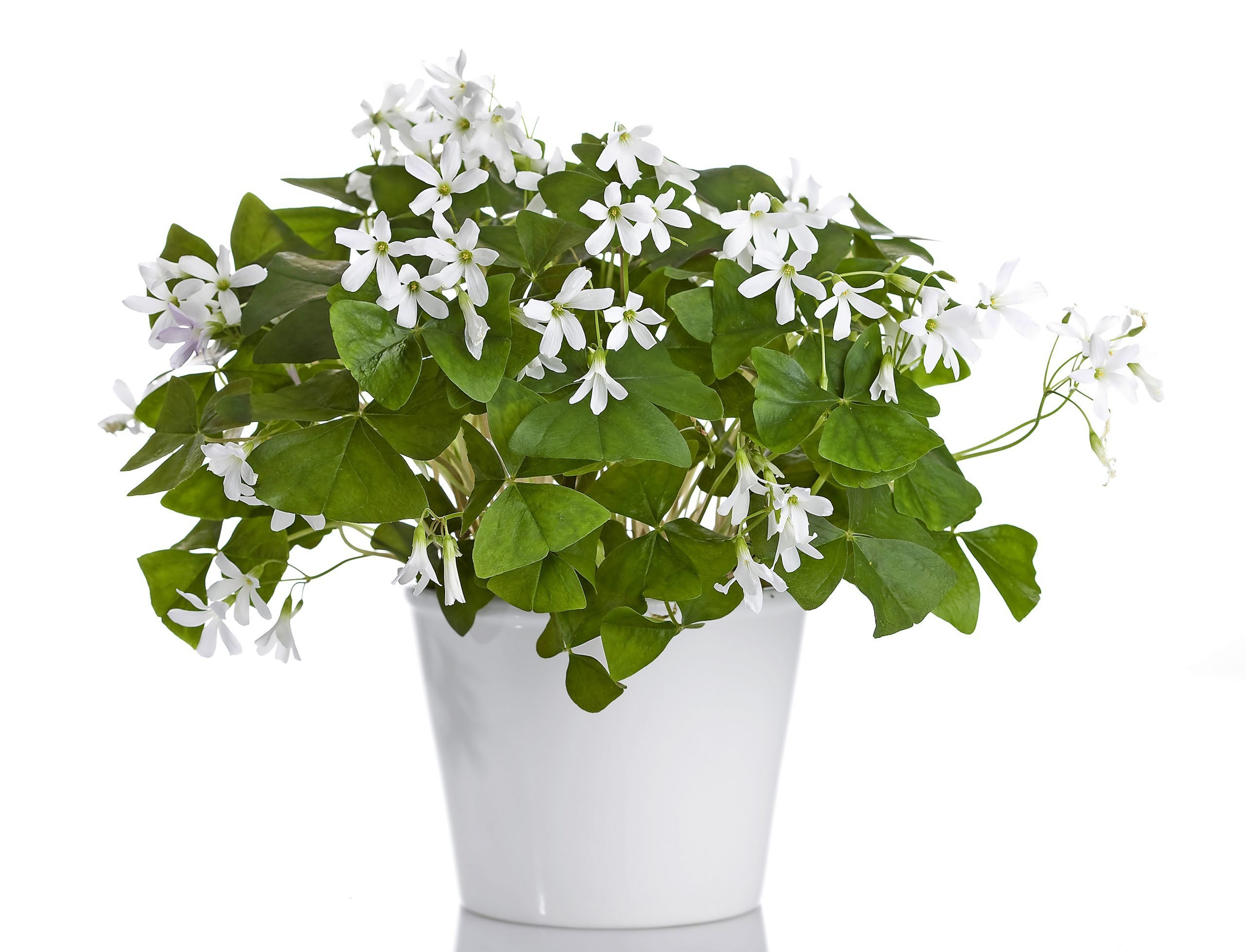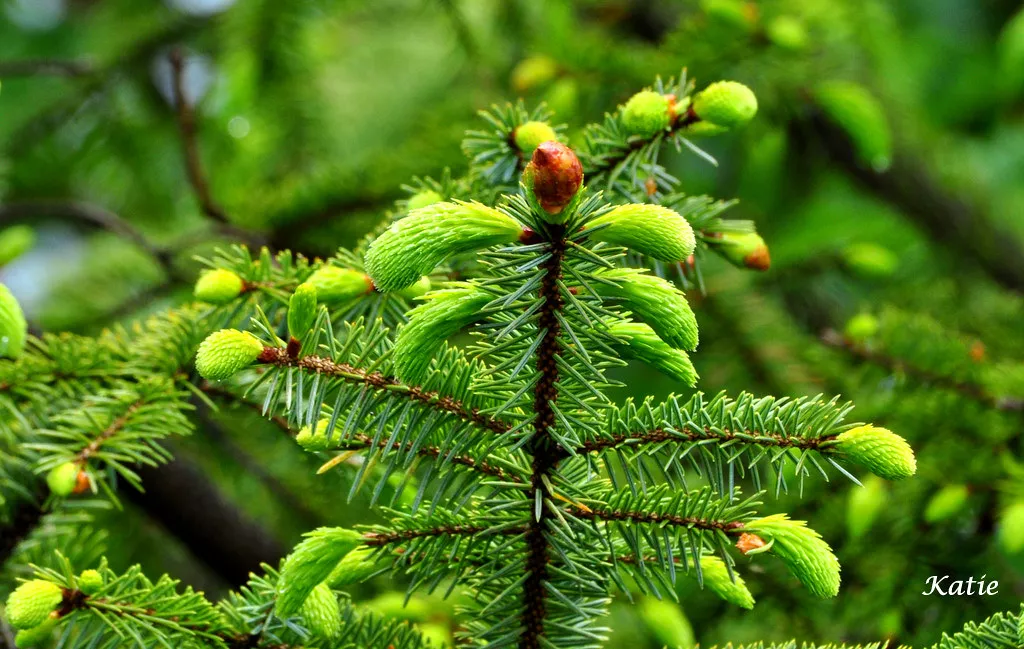To grow a thriving shamrock plant, provide ample sunlight and water moderately. Ensure well-draining soil to prevent root rot.
Shamrock plants, known for their charming, clover-like leaves, are relatively easy to care for. These plants thrive in bright, indirect sunlight and need moderate watering. Overwatering can lead to root rot, so it’s crucial to let the soil dry out between waterings.
Use well-draining soil to maintain plant health. Shamrocks also benefit from occasional fertilization during their growing season. With the right care, these plants can offer a lush, green addition to your home, bringing a touch of luck and beauty. Whether indoors or outdoors, a thriving shamrock plant can be a delightful, low-maintenance companion.

Credit: primexgardencenter.com
Introduction To Shamrock Plants
The shamrock plant is a beloved houseplant known for its three-lobed leaves. It is easy to grow and brings a touch of green to any home. Many people consider it a lucky charm.
Brief History
The shamrock plant has a rich history. It is native to Ireland and is often associated with Saint Patrick. Saint Patrick used the shamrock to explain the Holy Trinity. The plant became a symbol of Irish pride and heritage.
The shamrock has been cherished for centuries. It appears in Irish folklore and literature. It is also a common motif in Irish art and design.
Symbolism And Significance
The shamrock holds great significance. It symbolizes luck and prosperity. Many people believe that having a shamrock plant brings good fortune.
It is also a symbol of Irish identity. The shamrock is worn on Saint Patrick’s Day. It represents unity and pride among Irish people worldwide.
The shamrock’s three leaves are said to represent faith, hope, and love. Some varieties have four leaves, symbolizing luck.
| Symbolism | Meaning |
|---|---|
| Three Leaves | Faith, Hope, Love |
| Four Leaves | Luck |
Growing a shamrock plant can be rewarding. It requires minimal care and brings a sense of joy. Whether for its beauty or symbolism, the shamrock is a delightful addition to any home.
Choosing The Right Shamrock
Choosing the right shamrock is essential for a thriving plant. Shamrocks are easy to grow and bring a touch of luck to your home. To start, you need to know the popular varieties and how to select healthy plants.
Popular Varieties
There are several varieties of shamrocks, each unique in appearance and care needs. Here are some popular types:
- Oxalis Triangularis: Known for its purple leaves and small white flowers.
- Oxalis Regnellii: Features green leaves with white or pink flowers.
- Oxalis Deppei: Often called the lucky clover, it has green leaves with a maroon center.
| Variety | Leaf Color | Flower Color |
|---|---|---|
| Oxalis Triangularis | Purple | White |
| Oxalis Regnellii | Green | White or Pink |
| Oxalis Deppei | Green with Maroon | White |
Selecting Healthy Plants
To ensure your shamrock thrives, choose healthy plants. Follow these tips:
- Check for vibrant, undamaged leaves.
- Avoid plants with yellowing or wilted leaves.
- Look for a robust root system.
- Inspect for pests or diseases.
Healthy plants have a better chance of growing well. Ensure the plant’s soil is moist but not waterlogged. Choose plants with a good number of leaves and strong stems. A healthy shamrock can bring joy and luck to your home.
Planting Essentials
Shamrock plants, often considered lucky, thrive with proper care. Understanding planting essentials ensures healthy growth. Let’s dive into the critical aspects of growing a thriving shamrock plant.
Ideal Soil Conditions
Shamrocks prefer well-draining soil. Use a mix of potting soil and sand for best results. The soil should be slightly acidic, with a pH between 6.0 and 6.5. Adding organic matter like compost can improve soil texture and fertility.
| Soil Component | Percentage |
|---|---|
| Potting Soil | 70% |
| Sand | 20% |
| Compost | 10% |
Choosing The Right Pot
Selecting the right pot is crucial. The pot should have drainage holes to prevent waterlogging. A pot with a diameter of 6-8 inches works well for shamrocks. Use a clay or ceramic pot for better breathability.
- Ensure good drainage.
- Use a pot with 6-8 inches diameter.
- Opt for clay or ceramic pots.
Watering And Humidity
Ensuring proper watering and humidity is crucial for a thriving shamrock plant. These two factors significantly impact the plant’s health and growth. By following the right techniques, you can ensure your shamrock remains lush and vibrant.
Proper Watering Techniques
Shamrock plants need the right amount of water to thrive. Overwatering or underwatering can harm them. Here are some tips for proper watering:
- Water the plant when the top inch of soil is dry.
- Use room-temperature water to avoid shocking the roots.
- Avoid waterlogging by ensuring good drainage in the pot.
| Watering Frequency | Season |
|---|---|
| Once a week | Spring and Summer |
| Every two weeks | Fall and Winter |
Check the soil moisture regularly. Too much water can cause root rot.
Maintaining Humidity Levels
Shamrock plants also require the right humidity levels. Here’s how to maintain it:
- Place a humidity tray under the plant’s pot. Fill the tray with water and pebbles.
- Group plants together to create a humid microenvironment.
- Mist the leaves with a spray bottle daily.
Ideal humidity levels range between 50% to 60%. Use a hygrometer to monitor humidity.
Light And Temperature
Proper light and temperature are crucial for growing a healthy shamrock plant. These plants thrive when given the right conditions. Let’s dive into the details of optimal light and temperature for your shamrock.
Optimal Light Conditions
Shamrock plants need bright, indirect light to grow best. Direct sunlight can scorch the leaves. Place your plant near a window that gets filtered light. If using artificial light, aim for 12-16 hours a day. A simple curtain can help diffuse direct sunlight.
Temperature Preferences
Shamrock plants prefer cool temperatures. Ideal temperatures range from 60-70°F (15-21°C). Avoid placing them near heaters or air conditioners. Sudden temperature changes can stress the plant. Consistent temperature helps in healthy growth.
| Condition | Preferred Range |
|---|---|
| Light | Bright, indirect |
| Daytime Temperature | 60-70°F (15-21°C) |
| Nighttime Temperature | 50-60°F (10-15°C) |
Keep your shamrock plant away from drafts. A stable environment helps it thrive. Following these guidelines ensures your plant stays happy and healthy.
Fertilizing Tips
Fertilizing your shamrock plant is essential for its healthy growth. Proper nutrients help in producing lush, green foliage and vibrant flowers. This section covers the best fertilizers and fertilizing schedule for your shamrock plant.
Best Fertilizers
Choosing the right fertilizer is crucial for your shamrock plant’s health. Here are some of the best fertilizers:
- Balanced Liquid Fertilizer: A balanced liquid fertilizer with an N-P-K ratio of 10-10-10 works well.
- Organic Fertilizer: Organic options like fish emulsion or compost tea are great.
- Slow-Release Fertilizer: Slow-release granular fertilizers provide nutrients over time.
Always read the label to ensure the fertilizer is suitable for indoor plants.
Fertilizing Schedule
Following a proper fertilizing schedule helps your shamrock plant thrive. Below is a suggested schedule:
| Season | Frequency | Type |
|---|---|---|
| Spring | Every 2 weeks | Liquid Fertilizer |
| Summer | Every 2 weeks | Liquid Fertilizer |
| Fall | Once a month | Slow-Release Fertilizer |
| Winter | No Fertilizer | — |
In winter, shamrock plants go dormant. Avoid fertilizing during this period to prevent root burn.
By following these tips, your shamrock plant will grow strong and healthy. Happy gardening!
Common Issues And Solutions
Shamrock plants are known for their beauty and luck. But they can face problems. Here, we discuss common issues and their solutions.
Pest Control
Shamrock plants can attract pests like aphids and spider mites. These pests can harm the plant. Here are some ways to control pests:
- Inspect your plant regularly for signs of pests.
- Use a mild insecticidal soap to wash the leaves.
- Keep the plant in a well-ventilated area.
- Introduce natural predators like ladybugs.
These steps will help keep your plant healthy and pest-free.
Dealing With Leaf Yellowing
Leaf yellowing can be a sign of various issues. Here’s a table to help you diagnose the problem:
| Cause | Solution |
|---|---|
| Overwatering | Water the plant less. Let the soil dry out. |
| Underwatering | Water the plant more. Ensure the soil is moist. |
| Lack of Light | Move the plant to a sunny spot. |
| Poor Soil | Use a high-quality potting mix. |
Follow these solutions to keep your Shamrock plant thriving.

Credit: www.dreamstime.com
Propagation Methods
Growing a thriving shamrock plant involves understanding different propagation methods. These methods ensure a healthy and vibrant plant. Let’s explore two popular techniques: Division Technique and Growing from Bulbs.
Division Technique
The division technique is a straightforward method for propagating shamrock plants. This technique involves splitting the root clump into smaller sections. Each section should contain roots and leaves.
Follow these simple steps:
- Carefully remove the shamrock plant from its pot.
- Gently shake off the soil from the roots.
- Locate natural divisions in the root clump.
- Use a clean knife to cut the clump into sections.
- Replant each section in a separate pot with fresh soil.
- Water the newly potted sections lightly.
This method ensures each new plant has a strong start. The division technique is quick and effective.
Growing From Bulbs
Growing shamrock plants from bulbs is another effective method. This process involves planting small bulbs, which will sprout into new plants.
Here’s how to do it:
- Purchase healthy shamrock bulbs from a nursery.
- Fill a pot with well-draining soil.
- Place the bulbs on the soil surface.
- Cover the bulbs with a thin layer of soil.
- Water the soil lightly, keeping it moist but not soggy.
- Place the pot in a bright spot with indirect sunlight.
Bulbs typically sprout within a few weeks. This method is ideal for growing multiple plants quickly.
Using these propagation methods, you can enjoy a lush and healthy shamrock plant. Both techniques are easy and rewarding.
Seasonal Care
Taking care of your shamrock plant throughout the year ensures it stays healthy. Each season brings unique needs for your plant. Let’s explore how to care for your shamrock during different seasons.
Winter Dormancy
During winter, your shamrock plant enters a dormancy period. This is a time when growth slows down. The plant conserves energy during the colder months.
- Reduce Watering: Water the plant less often. The soil should stay slightly dry.
- Cool Temperatures: Keep the plant in a cooler room. Aim for temperatures around 50-60°F (10-15°C).
- Light Exposure: Provide bright, indirect light. Avoid direct sunlight.
Preparing For Spring
Spring is a time for renewal and growth for your shamrock plant. Proper preparation helps ensure a thriving plant.
- Increase Watering: Start watering more as new growth appears. Keep the soil moist but not soggy.
- Fertilize: Use a balanced fertilizer to support new growth. Apply every 2-3 weeks.
- Repotting: Spring is a good time to repot if needed. Choose a pot with good drainage.
Follow these steps for seasonal care and your shamrock plant will flourish. Happy gardening!
Enhancing Luck With Your Shamrock
The shamrock plant is more than just a pretty green foliage. It is a symbol of luck and fortune. Growing this plant can enhance the good vibes in your home. Learn how to integrate cultural practices and personal rituals to boost your luck with a thriving shamrock plant.
Cultural Practices
Many cultures view the shamrock as a lucky charm. The Irish believe that finding a four-leaf clover brings good luck. Each leaf represents faith, hope, love, and luck. Care for your shamrock by placing it in bright, indirect light. Water it moderately, allowing the soil to dry between waterings.
- Bright, Indirect Light: Shamrocks thrive in bright, indirect light. Keep them near a sunny window but out of direct sunlight.
- Moderate Watering: Water the plant moderately. Allow the soil to dry out between waterings to prevent root rot.
- Proper Drainage: Ensure the pot has drainage holes to avoid waterlogging.
Personal Rituals And Beliefs
Incorporate personal rituals to enhance the luck of your shamrock. Many people believe in talking to their plants to encourage growth. Speak positive affirmations to your shamrock daily. This can promote a positive atmosphere and enhance your connection with the plant.
- Positive Affirmations: Speak kind words to your shamrock. This can encourage healthy growth.
- Daily Care Routine: Establish a daily routine of checking your plant’s health. This shows the plant you care.
- Lucky Charms: Place other lucky charms near your shamrock. This can amplify the positive energy.
| Practice | Benefit |
|---|---|
| Bright, Indirect Light | Encourages healthy growth |
| Moderate Watering | Prevents root rot |
| Positive Affirmations | Enhances positive energy |

Credit: www.birdsandblooms.com
Frequently Asked Questions
How Do I Care For A Shamrock Plant?
To care for a shamrock plant, provide bright, indirect light. Water when the soil is dry to the touch. Avoid overwatering.
What Type Of Soil Is Best For Shamrock Plants?
Shamrock plants thrive in well-draining, sandy soil. A mix of potting soil and perlite works best.
How Often Should I Water My Shamrock Plant?
Water your shamrock plant when the top inch of soil is dry. Ensure proper drainage to avoid root rot.
Can Shamrock Plants Grow Indoors?
Yes, shamrock plants can grow indoors. They need bright, indirect light and regular watering. Ensure good air circulation.
Conclusion
A thriving shamrock plant can bring joy and luck to your home. With proper care, it will flourish beautifully. Water moderately, provide indirect sunlight, and ensure good drainage. Follow these tips, and your shamrock plant will thrive, bringing greenery and charm to your space.
Enjoy the vibrant touch of nature!



